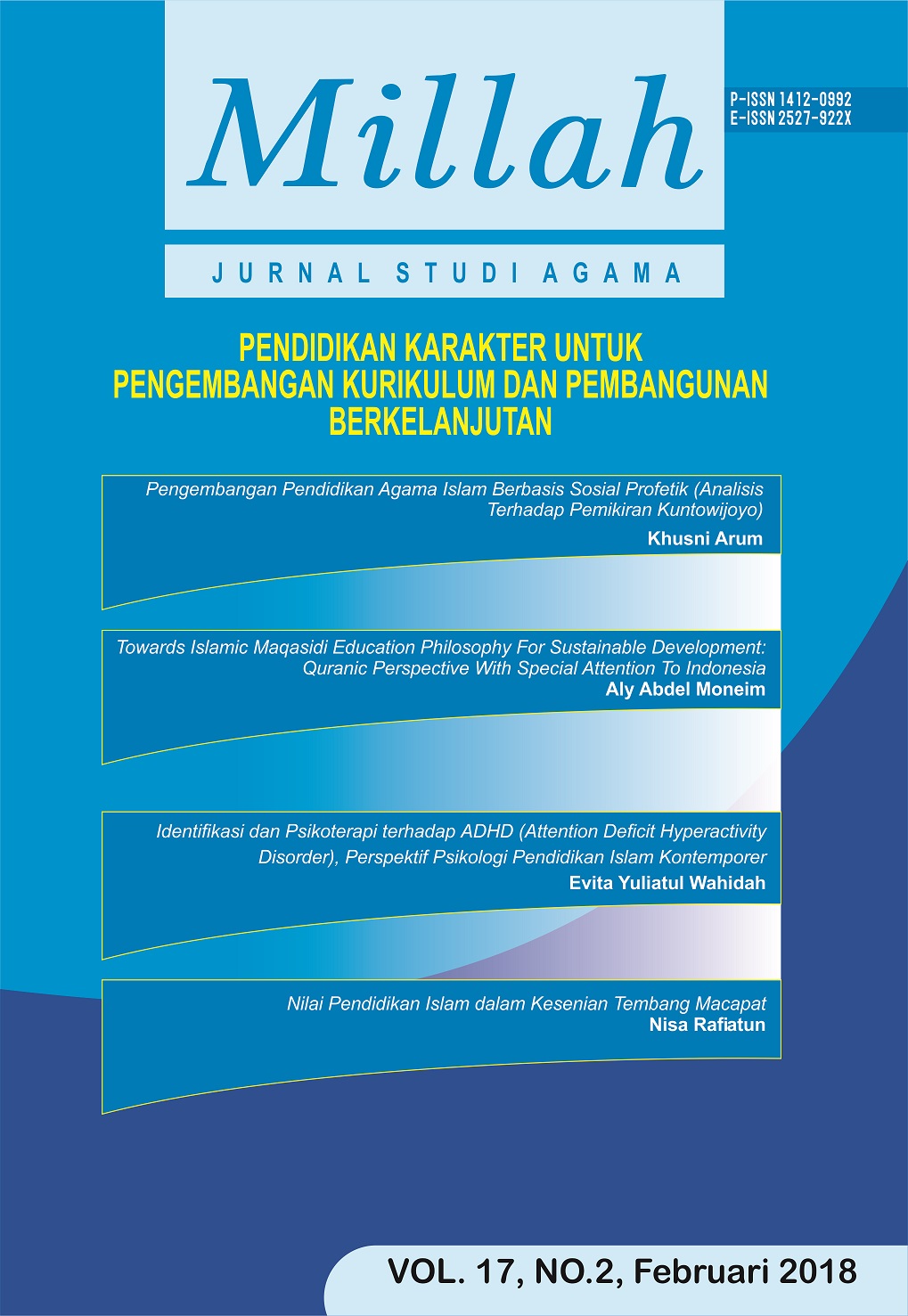Main Article Content
Abstract
Maqasid are the ultimate ends of life (worldly and afterlife) from Islamic perspective. This article tries to extract those Maqasid from the Sublime Quran. The effort done here constitutes the philosophical base needed for grand project interested in comprehend, criticize and transcend Sustainable Development (SD); the mainstream discourse in nowadays development policies, especially education development policies. Maqasid, as philosophy, offer an integrated mode of Islamic-based sustainable development, which can be applied in many field of SD. Ontologically, Maqasid propose systematic view of the universe that gathers the Creator and the creature, and gathers natural, psychological, social and man-made environments. In this regard, Maqasid propose an integrated network of relations among elements of universe system it propose, like ʻibādah, ʻimārah, tazkiyah, khilāfah, and istikhdām maqaṣidī. Epistemologically, Maqasid suggest a signs-based, systematic, developmental, purified and Arabic proof base for the ontological and axiological theses suggested. Axiologically, Maqasid introduce three principle values that govern all relations within Maqasidi system, namely truth, balance, and dynamic-based rights (al-ḥaq), patience (al-ṣabr) and mercy (al-marḥamah). The central domain of Islamic-based Sustainable Development (ISD) is the epistemological one, where Muslim is asked to make knowledge for sustainability based on signs, radical-encompassing (systematic) collection and operation of signs, developmental and purified signs and Arabic conception. ISD has many applications, one of them is its applications into education development planning, where standards of competencies and content are redefined, mainly, based on Makasid ontological model and standards of process are redefined, mainly, based on Makasid epistemological and axiological model.
Article Details
License
Authors retain copyright and grant the journal right of first publication with the work simultaneously licensed under a Creative Commons Attribution (CC-BY-SA) 4.0 License that allows others to share the work with an acknowledgment of the work’s authorship and initial publication in this journal.
How to Cite
Moneim, A. A. (2018). Towards Islamic Maqasidi Education Philosophy For Sustainable Development: Quranic Perspective With Special Attention To Indonesia. Millah: Journal of Religious Studies, 17(2), 221–266. https://doi.org/10.20885/millah.vol17.iss2.art4





